When it comes to taking iodine supplements, it's important to remember that there are different types of iodine supplementation and they are not all made equal.
Our bodies absorb some iodine better than others, and it can depend on where the iodine comes from and how it's put together which determines the quality of the supplement.
Different Iodine Supplements Explained
Synthetic Polyvinyl Polymers
Often used as a delivery system for iodine in plastic, pharmaceutical drugs, compounds, and molecules, synthetic polyvinyl polymers require the body to expend energy to extract usable unbound iodine. This process can be taxing, particularly for individuals already depleted in energy. Moreover, iodine sourced from contaminated or exposed sources may pose risks to cellular health.
Diatomic Iodine
Diatomic iodine, or I2, consists of two iodine atoms bonded together and is commonly found in solutions containing a combination of potassium iodide and diatomic iodine. However, this form has limited bioavailability, typically ranging from 20-50%. The body must expend energy to break apart the compound and molecule to access usable, unbound iodine. Additionally, there may be concerns regarding the source and efficiency of absorption.
Potassium Iodide
Potassium Iodide, KI, is commonly combined with I2, to help with absorption; I2 cannot be dissolved in water alone. Lugol’s solution, the most popular formulation, is 75% potassium iodide and 25% Diatomic Iodine.
Iodine Tablets
Iodine tablets offer a relatively low absorption rate, estimated at around 10%, as per the Physician’s Desk Reference. This limited absorption may hinder the effectiveness of supplementation.
Iodine Capsules
Capsule forms of iodine exhibit slightly higher absorption rates compared to tablets, with an estimated absorption rate of around 20%. However, this form still falls short of optimal bioavailability.
Gel Caps
Gel capsules boast a higher absorption rate, typically around 30%, making them more effective in delivering iodine to cells. The liquid nature of gel capsules allows for enhanced absorption and utilization.
Liquids
Liquid iodine supplements offer the highest bioavailability, with absorption rates ranging from 20-50%. The liquid form allows for rapid absorption and utilization by cells, making it an efficient option for supplementation.
Unbound Iodine (I-)
This is the only form of iodine with 100% absorption when suspended in alcohol due to the fact that it doesn’t need to be broken down for absorption. When suspended in alcohol, like Acceleradine® iodine, it increases bioavailability over glycerin or water forms of delivery.
Does the Body Need Different Types of Iodine?
There is much confusion about the body requiring different types of iodine for different parts of the body. This confusion stems from the Iodine Project, funded by Optimox the manufacturer of Iodoral, where they tested 4,000 patients with Lugol’s formula in tablet form. Lugol’s is 75 percent KI, potassium iodide, and 25 percent I2, or diatomic iodine, and includes possible toxic binding agents.
The study concluded that the thyroid prefers KI and the breasts prefer I2. They falsely marketed that the body needs two forms of iodine.
This study failed to test I-, or unbound iodine. As confirmed by pharmacy school, both KI and I2 need to be broken down or “lysed” into I- to be utilized by all cells in the body. For example, to make T4, thyroxine, with two I2s, the body must break apart the two I2s into four I- to create T4, 4 iodine atoms.
The Lugol’s solution created with a combination of 75% potassium iodide and 25% diatomic iodine in water exhibits only 20-50% bioavailability. While the thyroid and breast tissue can extract unbound Iodine (I-) from potassium iodide and diatomic iodine, respectively, this process requires considerable energy. Accessing unbound iodine immediately, as facilitated by the 100% bioavailable Acceleradine® Iodine proprietary tincture of unbound iodine, is more efficient and requires less energy, especially for individuals with compromised health.
Unbound Iodine (I-) is the essential form required for synthesizing thyroid hormones. In nature, iodine is predominantly found bound as the diatomic molecule of iodine (I2), with the less common occurrence of the singlet, anionic unbound iodine atom (I-) during evaporation.
The Best Sources of Iodine
Seaweed can be a potent iodine source, found in varieties like kelp, nori sheets used in sushi, and chlorella. While saltwater fish and shellfish also contain iodine, the quantity needed for sufficient intake is impractical—requiring consumption of 15 to 25 pounds of fish to reach 13 mg of iodine. However, securing iodine from dietary sources has become a concern due to ocean contamination from radiation stemming from incidents like the Chernobyl and Fukushima nuclear explosions.
As a result, iodine supplementation has become crucial. Various iodine supplements are available, but many are derived from contaminated sources or are diatomic molecules such as potassium iodide or sodium iodide, or complexes like povidone iodine. In these forms, iodine is bound to other molecules, requiring the body to break them down before utilization, leading to inefficient iodine solubility. Moreover, individuals with compromised immunity and low mitochondrial health, which is most people, may lack the strength to break apart these compound molecules into I-, the only usable form of iodine in the body.
Best Form of Iodine Should You Take
For maximum absorption liquid iodine is recommended. Acceleradine® Iodine is a pure, natural singlet active iodine (I-) form of iodine suspended in alcohol and enhanced with scalar frequencies. It achieves maximum bioavailability and absorbability since it exists as a single atom of iodine, devoid of attachment to other atoms. Therefore, even weak bodies can absorb the iodine efficiently in every cell of the body.



